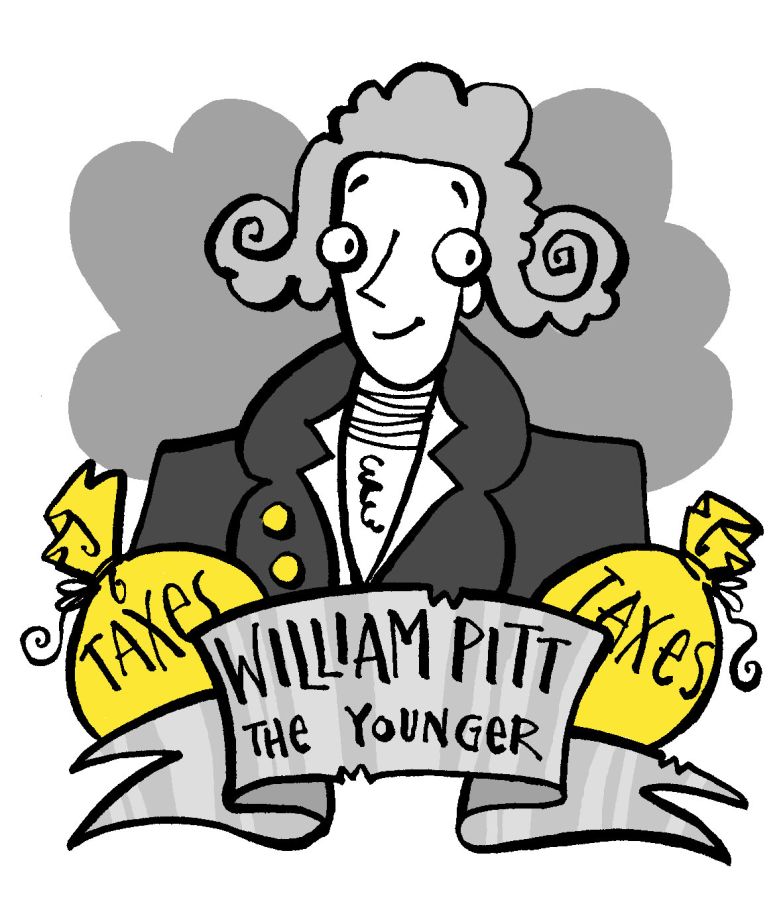Leading up to 1802 England was at war with France, again, and the country was being run by Pitt the Younger. He was really good with taxes, taxing the rich more than the poor, wax candles which gave a clean light were taxed more than the smelly and smoky tallow ones for instance, but the war had left the country in debt and needing more money.
Illustrations by Christine Jopling


Beer had been taxed for a long time, but Pitt also wanted to introduce a more modern Customs and Excise system to make sure that people were getting what they paid for, whilst also raising taxes. He reasoned that if you were going to have to pay more for it, you should at least know you were getting your money’s worth. Previously under Pitt’s leadership tea smuggling had stopped, he had personally borrowed money to offset the huge drop in the tax on tea to make it financially unviable to smugglers.
It was just as cheap for retailers to buy it legitimately as it was to get it from the smugglers, but the retailers still wanted to make extra money and were frequently cutting tea with hedgerow twigs, leaves and flowers, as well as with some more unsavoury ingredients, all mixed in with a bit of colouring to look like the much more expensive tea that people thought they were buying. It was a major problem of the time.
"It was pure coincidence I’m sure that hops and malt were both taxed, and the other ingredients weren’t."
Steve Dunkley
Steve Dunkley
Steve Dunkley
Steve Dunkley
Steve Dunkley
Become a CAMRA member today for unlimited free access plus many other membership benefits. Find out more